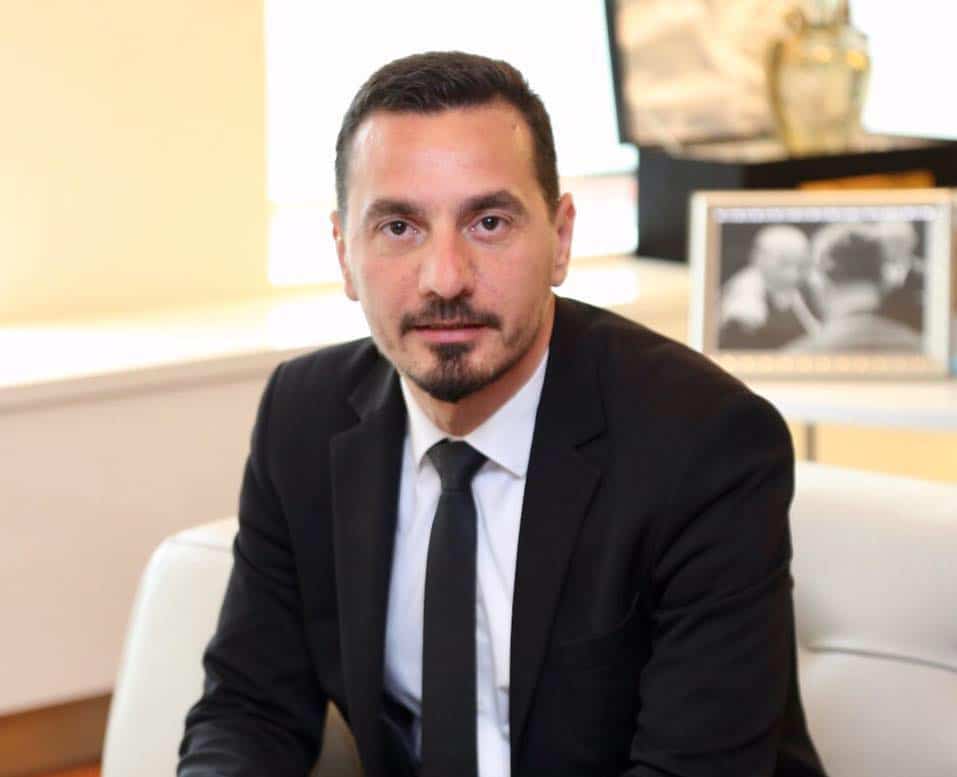One more person has been arrested in Turkey on Friday, for the collapse of the Isias hotel, which collapsed during the devastating earthquakes, killing 35 members of a Turkish Cypriot school group.
A few days ago, the four hotel operators were arrested as part of the investigation.
However, according to reports from the north, the Turkish police kept two in custody, Ahmet Bozkurt, and his son Fatih.
On Friday, police in Turkey arrested Bozkurt’s other son Efe, who was a manager at the hotel.
In a statement later in the day, the head of the Turkish Cypriot Bar Association, Hasan Esendagli said that their job is difficult, but they are cooperating with the Turkish Bar Association and the team of four lawyers from there.
Esendagli said that he would be heading the Turkish Cypriot team in the case, which will represent the families.
“Our goal is to support our families that want to fulfil their obligation by seeking the rights of their children and relatives, who they lost in the most painful way,” he said.
Issues arose with the construction of the hotel, which at the time one eyewitness and survivor said had collapsed like a “house of cards.”
According to the preliminary report by Eastern Mediterranean University in the north on the Isias hotel construction, the quality of the concrete was apparently low.
“Debris found in the area of the building were carefully examined and it was found that the quality of the concrete was obviously poor and that the gravel, stones, and sand used proved to be from a stream. When considering the size of the stream pebbles, it has been found that they are often larger than the maximum grain size in the concrete to be used in such constructions. The distribution of gravel and sand in the concrete is not good and is easily dispersed during manual inspection,” the report said.
Commenting on the course of the investigation for the building in question, it is stated that the building was erected in 1990-1991 as an apartment building, and for some reason it was not completed and remained vacant for ten years. Later, the hotel company Isias instead of demolishing it in 2001, turned it into a hotel and in 2005 increased its capacity from 36 beds to 65.
Ozgur Tunc, President of the Chamber of Civil Engineers of Adiyaman confirmed that the foundation of the hotel was laid in 1990-1991 and construction stopped in the rough construction phase, with the building remaining empty until 2001 with this rough construction exposed to rain and snow for ten years causing erosion.
Speaking about the situation at the Isias hotel, the head of the civil defence in the north Cemal Betmezoglu said that for the first two days they were alone in the area, and that they could not have imagined the scale of the damage.
He said that the teams from the north worked to help other people in the area as well, and that from neighbouring buildings to the hotel they managed to save seven.
“Our hope was to find our people [the Turkish Cypriot school group] alive. We tried until the last day, but unfortunately, we didn’t succeed,” he said.
Mustafa Doyar, another rescuer, said that once they saw the hotel, there hopes dissipated.
Meanwhile one of the mothers, Feriha Yigiturk, whose 14-year-old son Izcan died, said that whoever is responsible for the fate of their children needs to pay.
She told Yeni Duzen, for the six days that they were waiting the parents never felt so much pain or misery.
Speaking about his daughter, Enver Karakaya said that he lost his only child, his Selin.
He added that the only thing keeping him alive now, is to keep his daughter’s memory alive, and see those, who caused her death punished.
“We thought that we would dig by hand and find the, until the last moment we had hope,” he said.
A school of 39 people from Famagusta stayed at the hotel for a volleyball tournament. During the earthquake only four adults escaped, while the other 35 people were found dead in the rubble of the hotel.
Most of the victims were children.







Click here to change your cookie preferences